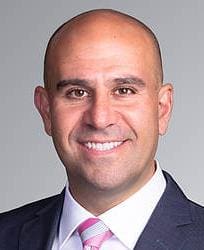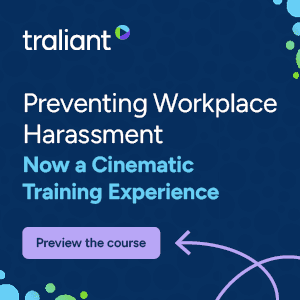False Claims Act litigation surrounding drugmakers’ speaker programs, often used to educate healthcare professionals about a company’s products, has many organizations understandably on edge. Randy Luskey of Paul, Weiss examines recent government and industry guidance on pharmaceutical speaker programs and offers insights to help companies develop effective guardrails.
Pharmaceutical companies have long used speaker programs as tools to educate healthcare professionals about their products. But recent years have seen increased scrutiny of and litigation involving these programs, which have been the source of long-expressed concerns by the Office of the Inspector General for the Department of Health and Human Services (HHS-OIG).
An increase in False Claims Act (FCA) lawsuits involving speaker programs, and the significant resulting settlements, have triggered concern and confusion across the industry. In response, both the HHS-OIG and the Pharmaceutical Research and Manufacturers of America (PhRMA), the trade association representing biopharmaceutical research companies, have released guidance on speaker programs, presumably to help organizations develop compliant processes and practices.
But inconsistencies and ambiguity in their guidance have created uncertainty for companies engaged in good-faith efforts to navigate ever-changing expectations in this space.
Uptick in FCA litigation
For decades, pharmaceutical companies have hosted speaker programs as a means to educate the industry on their products. These events often take place at a restaurant or event space and feature a well-credentialed speaker, who is compensated for presenting on one of the company’s products or the relevant disease state. Over the past decade or so, however, there has been a surge of new lawsuits alleging that certain speaker programs violate the FCA and Anti-Kickback Statute (AKS). The lawsuits typically allege that speaker programs are sham social events, devoid of any real educational value, and that the payments to HCP speakers are kickbacks, intended to induce or reward prescriptions of the company’s drugs.
Given hefty settlements struck with the DOJ — including, among others, Novartis’ settlement of over $642 million — stakeholders are paying close attention to the potential regulatory risks in this space.
Healthcare Price Transparency and Its Market Impact: Where Are We Now and What’s Next?
Calls for shedding light on price variability, coupled with an industry that is increasingly consumer-focused, is driving greater examination of how hospitals, payors and providers price and charge for care, and healthcare industry analyst Christina Steiner sets the stage for what to expect in the coming years.
Read moreDetailsContradictory guidance
Despite a heightened focus on speaker programs, what is permissible in the context of these events remains unclear. The HHS-OIG and PhRMA both recently released updated guidance on sponsoring such programs, but the guidance is inconsistent and, at times, ambiguous.
In 2020, the HHS-OIG released a fraud alert that included a non-exhaustive list of characteristics the HHS-OIG views as suspect, such as availability of alcohol, repeat attendance, attendees lacking a legitimate business reason to participate in the program, speaker payments that exceed fair market value and the lack of educational information, among other features. The absence of a formal, concrete and comprehensive list of prohibitions makes it difficult for industry participants to understand the HHS-OIG’s expectations as there remains no clear policy for companies to reference.
Meanwhile, in 2022, PhRMA updated its code on interactions with healthcare professionals, which it describes as a “voluntary code” regarding the relationships between pharmaceutical and biotechnology companies and HCPs. The code reemphasized that speaker programs should be used to present substantive educational information and also introduced multiple new standards regarding such programs, including that HCPs should not be selected to serve as speakers based on revenue they have generated or may generate for the company; repeat attendance should not be permitted unless there is a “bona fide educational need”; guests of HCPs, including family and friends, should not attend unless they have an “independent, bona fide educational need”; speaker programs should not be hosted at “high-end” restaurants; and alcohol should not be paid for or provided.
Notably, the 2022 update is the third revision to the PhRMA Code since its creation and the second update since 2019. These changes to relied-upon guidance make it difficult for companies to plan programs that are consistently compliant long term. For example, the 2019 code does not mention alcohol, while the 2022 code restricts it. Likewise, the 2019 document is silent on repeat attendance, while the 2022 version designates repeat attendance as inappropriate unless there is a true educational need. The most recent iteration also notes that speakers cannot be chosen based on past or future revenue generation, but such criteria is not included in prior versions.
Moreover, portions of the PhRMA code conflict with multiple aspects of the OIG fraud alert, raising questions about which guidance companies should follow. For example, the OIG fraud alert flags speaker programs held in restaurants as suspicious because they are “not conducive to the exchange of educational information,” while the 2022 PhRMA code merely cautions against “high-end” restaurants and focuses on the extravagance of the location, making clear that some restaurants are appropriate venues for the exchange of educational information.
Similarly, the OIG fraud alert considers the availability of alcohol a suspect feature and flags free alcohol as a heightened concern, while the 2022 PhRMA code expressly states that companies should not provide any alcohol at events. In yet another example, the OIG fraud alert addresses virtual vs. in-person programs, noting that the “risks associated with speaker programs will become more pronounced if companies resume in-person speaker programs,” while the 2022 PhRMA code is silent on this topic.
Most notably, the two sets of guidance diverge on a fundamental level regarding the value of speaker programs. In its fraud alert, the HHS-OIG states that it is ”skeptical about the educational value of such programs.” The 2022 PhRMA code, on the other hand, recognizes that speaker programs “offer important educational opportunities.”
Interestingly, corporate integrity agreements (CIAs) negotiated by the HHS-OIG — which specify obligations an organization must fulfill pursuant to its civil settlement with the HHS-OIG — typically do not prohibit hosting speaker programs at restaurants or serving alcohol at such events, or otherwise state that speaker programs are noneducational or inherently suspect. (See, e.g., Avanir Pharmaceuticals and DUSA Pharmaceuticals.)
The tension between the OIG fraud alert, the 2022 PhRMA code and the relevant CIAs has introduced additional confusion for industry participants attempting to develop compliant speaker programs. The uncertainty relating to which standards apply and the inconsistencies between this guidance are particularly problematic in defending FCA/AKS lawsuits, given that claimants (relators) often cite to these documents as gospel when seeking to establish that the company intentionally and knowingly violated the “rules of the road.”
Moving forward
Given the uncertainty surrounding speaker program compliance, companies may wish to consider proactively taking steps to minimize litigation risks in this area. At a high level, organizations may focus on documenting their efforts to tailor their speaker programs to a legitimate and genuine educational need. For example, organizations can proactively plan how many speaker program events they need to accomplish their educational objectives, including a written assessment of how many events are needed based on new drug releases and new clinical developments (or lack thereof). Organizations may also wish to focus on the content of speaker programs, ensuring it is fresh — not recycled from past programs — and that it captures significant clinical developments.
CIAs may also be useful resources, as these agreements may shed light on what the government views as best practices when developing compliant speaker programs. Some common themes in CIAs include compliance measures to ensure that companies (1) have appropriate written contracts in place with speakers; (2) implement a centralized, electronic system to track speaker programs, including all attendees, and incorporate controls to monitor compliance; and (3) follow a predetermined rate structure based on a documented fair-market value analysis to pay speakers. Perhaps most importantly, it is prudent for companies to develop well-documented internal and external proactive monitoring tools to assess and remediate speaker program compliance gaps on a routine basis.
Given the current scrutiny on speaker programs, it is more important than ever that pharmaceutical companies carefully plan such events with an eye toward compliance. While the current guidance is, at times, amorphous and contradictory, focusing on legitimate educational interests and strengthening speaker program monitoring efforts remain critical ingredients to designing and running compliant programs that help mitigate the risk of litigation.




 Randy Luskey is a partner at Paul, Weiss, Rifkind, Wharton & Garrison in San Francisco. A former assistant U.S. attorney in the U.S. Attorney’s Office for the Northern District of California, Randy is an accomplished trial lawyer who handles a wide range of litigation, white collar and investigations matters. Randy has extensive experience representing leading healthcare and pharmaceutical companies and organizations in False Claims Act and Anti-Kickback Statute investigations.
Randy Luskey is a partner at Paul, Weiss, Rifkind, Wharton & Garrison in San Francisco. A former assistant U.S. attorney in the U.S. Attorney’s Office for the Northern District of California, Randy is an accomplished trial lawyer who handles a wide range of litigation, white collar and investigations matters. Randy has extensive experience representing leading healthcare and pharmaceutical companies and organizations in False Claims Act and Anti-Kickback Statute investigations. 







